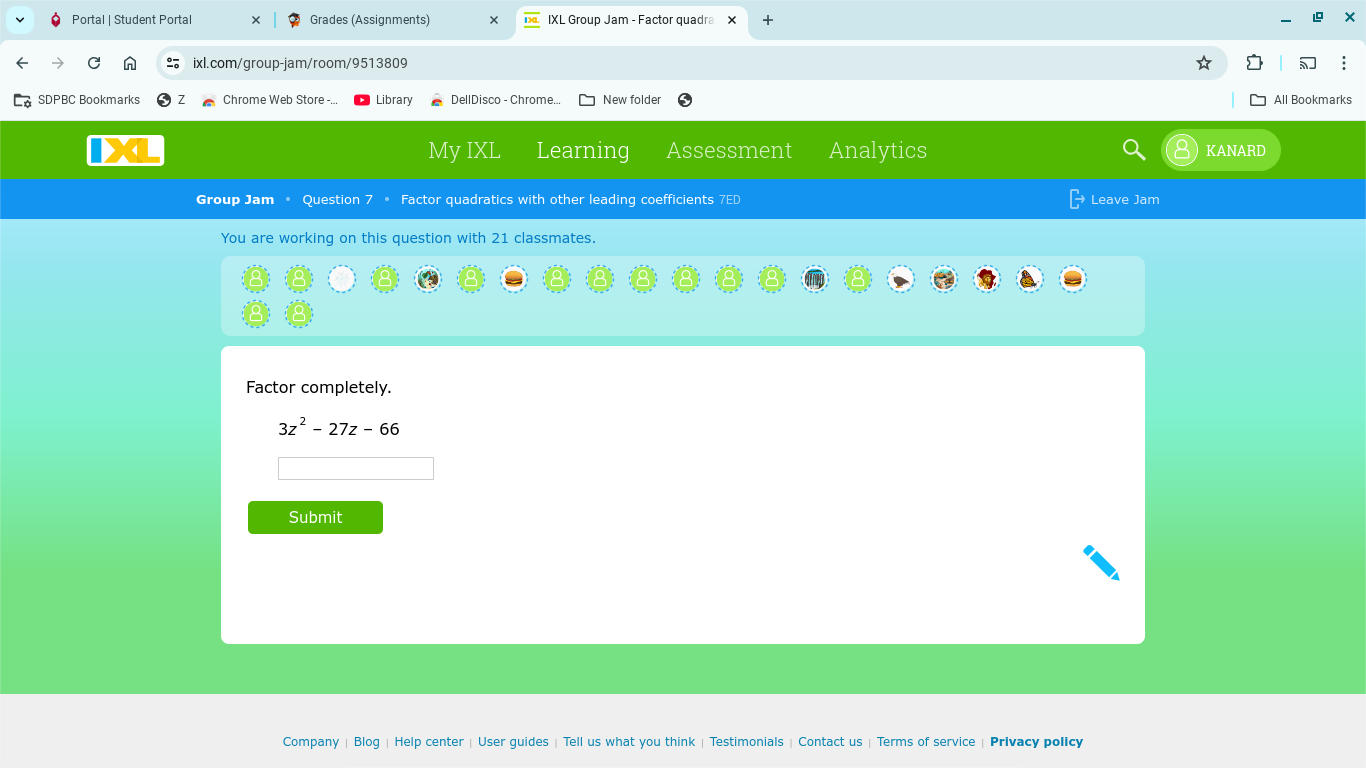Factor completely: 3z² - 27z - 66.

Understand the Problem
The question asks for the complete factorization of the quadratic equation presented, which is expressed as 3z² - 27z - 66. To solve this, we need to find factors that satisfy the equation completely.
Answer
The complete factorization is $$3(z - 11)(z + 2)$$.
Answer for screen readers
The complete factorization of the quadratic equation $3z^2 - 27z - 66$ is $$3(z - 11)(z + 2)$$.
Steps to Solve
-
Identify the quadratic equation
The given quadratic equation is $3z^2 - 27z - 66$. -
Factor out the common coefficient
First, factor out the greatest common factor (GCF) from all the terms. The GCF of $3$, $-27$, and $-66$ is $3$.
This gives us:
$$3(z^2 - 9z - 22)$$ -
Factor the quadratic expression
Next, we need to factor $z^2 - 9z - 22$. We look for two numbers that multiply to $-22$ (the constant term) and add up to $-9$ (the coefficient of the linear term):
The numbers are $-11$ and $2$.
So, we can write:
$$z^2 - 9z - 22 = (z - 11)(z + 2)$$ -
Combine with the factored GCF
Now combine the GCF with the factored form:
$$3(z - 11)(z + 2)$$ -
Write the fully factored form
The complete factorization of the quadratic expression is:
$$3(z - 11)(z + 2)$$
The complete factorization of the quadratic equation $3z^2 - 27z - 66$ is $$3(z - 11)(z + 2)$$.
More Information
Factoring quadratics is a fundamental skill in algebra that helps simplify expressions and solve equations. Understanding how to reverse the process of expansion is crucial for mastering algebraic manipulation.
Tips
- Overlooking the GCF: Students might forget to factor out the greatest common factor first, which can complicate the factorization process. Always identify the GCF before proceeding.
- Incorrect factor pairs: When searching for two numbers to factor the quadratic, make sure they multiply to the constant term and add to the coefficient of the linear term.
AI-generated content may contain errors. Please verify critical information